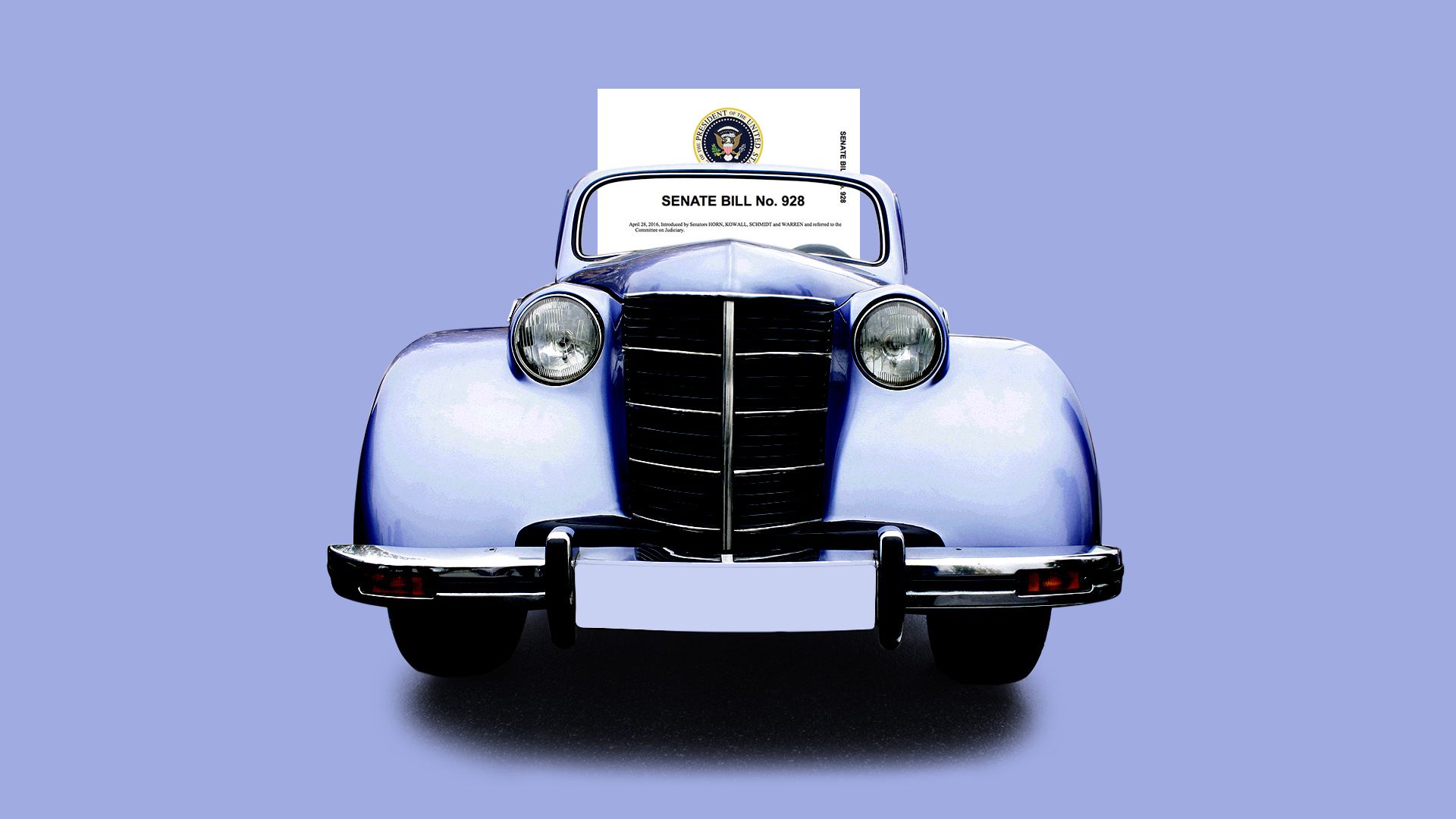Self-driving vehicle law hits a speed bump
Add Axios as your preferred source to
see more of our stories on Google.

Illustration: Rebecca Zisser/Axios
Lawmakers working to speed a federal framework for autonomous vehicles into law face a key obstacle that stymied previous attempts: who gets sued in collisions.
The big picture: Manufacturers and tech companies want federal rules of the road for their roll-out of self-driving vehicles. But trial lawyers, a powerful lobby, want key questions on liability in a driverless world answered before legislation advances.
Driving the news: Daniel Hinkle, an attorney with the American Association for Justice, is one of six people testifying at a House Energy & Commerce consumer protection subcommittee hearing Tuesday.
- In his written testimony, Hinkle warned that in order to ensure manufacturers live up to the promise that autonomous vehicles will be safe, laws — and consumer access to the courts — must hold them accountable to that promise.
- Specifically, trial lawyers want to see manufacturers face liability as the "drivers" in collisions, and want Congress to prohibit forced arbitration so that consumers could sue manufacturers.
- "The reality is that vehicle manufacturers have almost never voluntarily embraced safety technology without some precipitating force — and that force has most commonly been public accountability through the courts," Hinkle wrote.
Yes, but: Others argue the arbitration issue shouldn't hold up urgently needed legislation.
- Arbitration is "a distraction," said Marc Scribner, senior fellow at the Competitive Enterprise Institute.
- But AAJ notes that early uses of autonomous vehicles could involve ordering up a ride from Uber or Lyft, which already use arbitration clauses in their app contracts.
- "When Uber and Lyft are not only providing the car service but they are quite literally driving the car, they should be able to be held accountable not as a ride-share tech company, but as an auto manufacturer," said Julia Duncan, AAJ senior director of government affairs.
Other groups testifying Tuesday: Advocates for Highway and Auto Safety, Alliance for Automotive Innovation, National Federation of the Blind, Consumer Technology Association and San Francisco Municipal Transportation Agency.
Context: After AV legislation stalled in 2017 and 2018, in part because of questions about liability, lawmakers from both parties in both the House and the Senate are working together on a new bill.
What they're saying: The clock is ticking for Congress to act, Energy and Commerce Republican ranking member Greg Walden (R-OR) argues in prepared remarks.
- "The U.S. is in a global race to AVs, but today the cost of inaction is clear: we are behind," he says.
- But consumer advocates argue that safety should be the priority.
Where it stands: Without federal legislation, a hodgepodge of state laws allows the testing and deployment of self-driving cars.
- In the meantime, NHTSA will have to consider exemptions from existing safety regulations on a case-by-case basis.
- Last week, it granted the first exemption to Nuro, maker of a low-speed delivery vehicle.
Go deeper:

